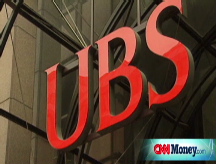Get ready for more bank failures
A small bank in Arkansas was recently shut down for "unsafe and unsound practices." More banks are probably going to meet the same fate.

NEW YORK (CNNMoney.com) -- Bear Stearns may have been deemed too big to fail. But ANB Financial, a small bank in Arkansas, wasn't. And we might need to brace for even more bank shutdowns.
ANB, a privately held bank based in Wal-Mart's home town of Bentonville with $2.1 billion in assets, was closed on Friday by the Office of the Comptroller of the Currency. The OCC is a division of the Treasury Department that regulates banks.
Apparently, ANB got into trouble by making bad loans for construction projects in Idaho, Wyoming and Utah in addition to Arkansas.
It is the third bank failure of the year, and it reminds us that many financial institutions beyond heavyweights like Bear Stearns (BSC, Fortune 500) are struggling because of the subprime mortgage mess and resulting credit crunch.
"We are going to see a fair number of bank failures," said Chip MacDonald, partner in the capital markets group Jones Day, a law firm headquartered in Cleveland. "We are in the early innings. For the public banks that have reported earnings for the first quarter, it has not been a pretty picture."
MacDonald predicts that more small banks like ANB will be shut down and that the list of so-called "problem institutions" being monitored by the Federal Deposit Insurance Corp. will grow much larger.
According to the most recent figures from the FDIC, the government agency which insures bank deposits of up to $100,000, 76 banks were on the FDIC's "problem list" as of the end of December.
A spokesman for the FDIC said the agency will report figures for the first quarter on May 29. MacDonald said it would not surprise him if the number of problem banks is now up to 100 to 125 institutions.
What's more, MacDonald said that larger banks could also be at risk of failure. He noted that Brea, Calif.-based bank Fremont General (FMNT), a big subprime lender, could be in trouble.
Fremont, which had $8.8 billion in assets as of last September (its most recent figures), was ordered by the FDIC to either raise more capital or find a buyer back in March.
The company has agreed to sell some of its mortgage servicing rights to an affiliate of Goldman Sachs (GS, Fortune 500) and sell bank branches and deposits to finance firm CapitalSource (CSE). But on Friday, Fremont warned that despite these transactions, it may still have to file for bankruptcy.
"Fremont General could be in trouble. It's on a short string to raise capital or sell," said MacDonald. "It's companies like that are on a high wire with the FDIC."
So what's this all mean for the financial services industry, investors and consumers? Well, this is exactly what is needed right now.
The OCC and FDIC should shut down failing banks and then sell off the deposits instead of engineering bailouts ala the Federal Reserve's "rescue" of Bear Stearns by JPMorgan Chase (JPM, Fortune 500).
To that end, $213 million of ANB's insured deposits and branches are being acquired by Iberiabank (IBKC), a holding company for Little Rock, Ark.-based Pulaski Bank and Trust.
The FDIC will cover the remaining $1.6 billion in ANB's brokered deposits, i.e. large deposits broken up into smaller chunks and sold to brokerages.
This process may be painful but it will weed out the weak banks that were reckless.
"In general, I think it's a bad idea to let banks go under that are dealing with consumers and individual investors directly. But I think that having an efficient capital markets system requires that companies that perform at a subpar level have some repercussions from that," said Brian Hamilton, CEO of Sageworks, a financial information research firm that values public and private companies.
It's not good news for shareholders of the publicly traded banks that are failing but the collapse of more banks should hopefully lead to a healthier financial system going forward. Hamilton pointed out that the rash of bank failures during the savings and loan crisis of the 1980s did help accomplish that. And MacDonald thinks it will work again.
"The system is working as is. There shouldn't be issues of confidence about customers' deposits," MacDonald said.
Issue #1 - America's Money: All this week at noon ET, CNN explains how the weakening economy affects you. Full coverage.
Are you buried under a pile of debt and need help getting out? Did you recently manage to pull yourself out of debt and want to share your story? Tell us about your experience with debt and how the current credit crisis is affecting you.. ![]()



